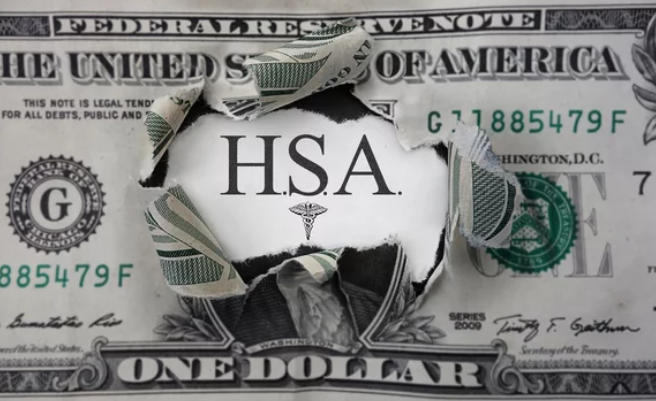
Introduction
You may have never heard of a Health Savings Account but you are truly missing out. That’s because a Health Savings Account is a brilliant but mostly unheard of avenue for millions of American to get the sort of health care they need but don’t want to pay for.
Best of all, a Health Savings Account is actually very flexible and able to cover many expenditures. Additionally, it can also help you gain money in other ways too and help you invest in you and your family’s future.
So, it’s time to learn more about a Health Savings Account and what it can do for you.
What is a HSA?
A Health Savings Account, or HSA, is a convenient method to put money aside for medical costs while also lowering your taxable income. However, not everyone is eligible for — or should enroll in — the kind of health insurance plan necessary to form an HSA. Continue reading to discover more about HSAs and how they may help you.
HSAs are similar to personal savings accounts, except that the money in them is used to pay for medical bills. The money in your HSA belongs to you, not your employer or insurance company.
How Do You Quality for a HSA?

You may be eligible for an HSA if you are enrolled in a government-defined high-deductible health insurance plan. Keep in mind that t he IRS re-defines these plans each year, determining the lowest deductible and the maximum amount a planholder may pay out-of-pocket. These amounts may be found on healthcare.gov, but keep in mind that some plans have large deductibles yet do not qualify for an HSA. If you want to use your HSA, look for plans that are clearly labeled “HSA-eligible.”
How an HSA Works
HSAs are offered by certain companies that provide high-deductible health insurance. But don’t worry if yours doesn’t. As long as you have a qualified plan, you may start a separate HSA account.
You choose how much to put into your HSA account each year, but you can’t go above the government-mandated limits. You may set up simple automatic payments straight from payroll if you have an HSA via your employer.

Your HSA balance will be connected to a debit card or bank account which you may use to pay for approved medical costs. Deductibles, copays, and coinsurance, as well as any eligible medical expenditures not covered by your plan, are included. Insurance premiums, in most cases, cannot be paid using HSA money.
Do Health Savings Accounts Rollover?
Your HSA balance rolls over from year to year, unlike a Flexible Spending Account, so you never have to worry about losing your money. You can no longer contribute to an HSA after you turn 65 and are enrolled in Medicare, but you may still utilize the money for out-of-pocket medical expenditures. If you spend the money on things that aren’t qualified, you’ll have to pay income tax on it.
Why Should You Do an HSA Rollover?
Are you asking yourself if you should do a HSA rollover, you should take a look at these two ideas. An HSA rollover makes sense if:
- You’d don’t want to leave an account with an old employer that you must remember to manage.
- You want to transfer your money to a different HSA provider offering better options, lower fees, or other advantages compared with your former employer’s plan.
If you are leaving your job or just want to switch your HSA plan,you have the option of doing so from your existing account into a new one. But keep in mind that you can only do an HSA rollover just once every 12 months so make sure you make it count when you do.
Your HSA balance rolls over from year to year, unlike a Flexible Spending Account, so you never have to worry about losing your money. You can no longer contribute to an HSA after you turn 65 and are enrolled in Medicare, but you may still utilize the money for out-of-pocket medical expenditures. If you spend the money on things that aren’t qualified, you’ll have to pay income tax on it.

Is an HSA Right For You?
HSAs, like any other health-care plan, offer benefits and drawbacks. Consider your finances and the health care you’ll need in the next year as you consider your alternatives.
If you’re a typically healthy person and want to put money aside for future medical bills, an HSA might be a good option. That’s because it’s essentially laying the ground work for a healthy future and it’s planning ahead. That’s smart!
Alternatively, if you’re approaching retirement, an HSA may make sense since the funds may be used to defray the expenses of medical care once you retire. It’s always smart to be ready to focus on your health more and more around the time of retirement and an HSA can assist with that.

However, if you believe you will need costly medical treatment in the next year and will struggle to satisfy a high deductible, an HSA and high-deductible health plan may not be the best choice for you.
Who Sets Up A Health Savings Account?
An HSA may be offered through your company, or you may open one on your own via a bank or other financial institution. You must be under the age of 65 and have a high-deductible health insurance plan to qualify.
If your spouse utilizes your insurance as a backup plan, he or she must also be enrolled in a high-deductible plan.
This high-deductible health plan must be your only source of medical coverage. Dental, vision, disability, and long-term care insurance are all options.
Advantages of an HSA
What are the advantages of establishing and using an HSA? Honestly, there are plenty. Some of the most important advantages of an HSA are:
- You control how your HSA money is spent. This allows you to shop around for the best care and the care provider that you really want to use.
- You own the account. Even though your employer will be contributing to your HSA, the money is rightfully yours even if you quit or change your job.
- You do not pay teaxes on money going into your HSA.
- Any unused money at the end of the year is rolled over into the next year and is yours for the entirity of the time you have your HSA. It rolls over year after year and is always yours and ready to be spent as you see fit.
Disadvantages of an HSA
Just like their advantages, there are also disadvantages of having an HSA too. Although most people will admit that the advantages far outweight the disadvantages, there are negative things to keep in mind when you are thinking of getting an HSA.
- Reliable information about the cost and quality of the medical care you will be getting is sometimes hard to find, creating uncertainty.
- The pressure to save the money in your HSA might make you feel inclined to avoid medical care so you don’t deplete your funds.
- If you take money out of your HSA for nonmedical expenses, you will be paying taxes on it.
- Getting sick can be unpredictable and budgeting around illness is nearly impossible since you often don’t know when it’s coming.
- You may not have a lot of money to contribute to your HSA.
Investing Via HSA
HSAs also have the advantage of being able to invest in mutual funds, stocks, and other investment vehicles. Depending on your investment choices, several firms may assist you with this.
HSAs may be an appealing investment option in addition to assisting American employees in taking charge of their health and financial wellbeing requirements. Account members may put money into an HSA to save for future medical expenses, as well as invest in mutual funds after they exceed the investment level. Target-date series, active and passive stock, bonds and fixed income are some of the investment possibilities offered, which are comparable to those found in most corporate retirement plans. As a result, a person may contribute to their HSA over a period of 10 to 20 years and perhaps be better prepared for retirement.

If you consider that the United States is in the midst a retirement crisis, thanks in large part to rising health-care expenditures, this element of HSA is critical. Millions of American employees are concerned that they will not be able to cover their medical bills in retirement. When you think that the typical couple would require thousands of dollars in savings to pay health-care costs in retirement, such sentiments may be understandable.
As a result, in addition to helping pay for health-care expenditures while you’re working, HSAs may also be used to help address the retirement health-care savings gap.
Conclusion
As you can see, a Health Savings Account is a wonderful way to take control of your health – and your finances.
Many people haven’t been informed about an HSA or its wonderful advantages but the more people discover them, the more they save money – and save their own future too. In a country that is becoming increasingly expensive and and a health industry that is finding new ways to charge you, a HSA is a great way to make sure you are financially sound.
It takes some work to set one up but a HSA is beyond worth it. Once yours is established and you’re paying into it, you’ll feel financially – and physically – happy and healthy.

